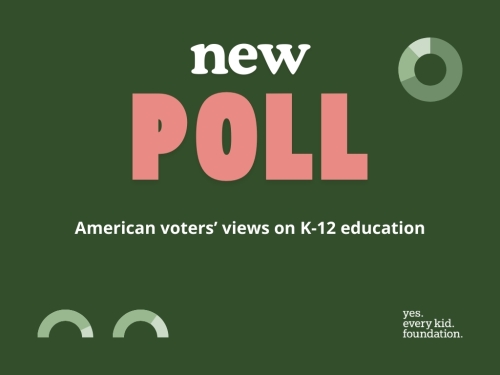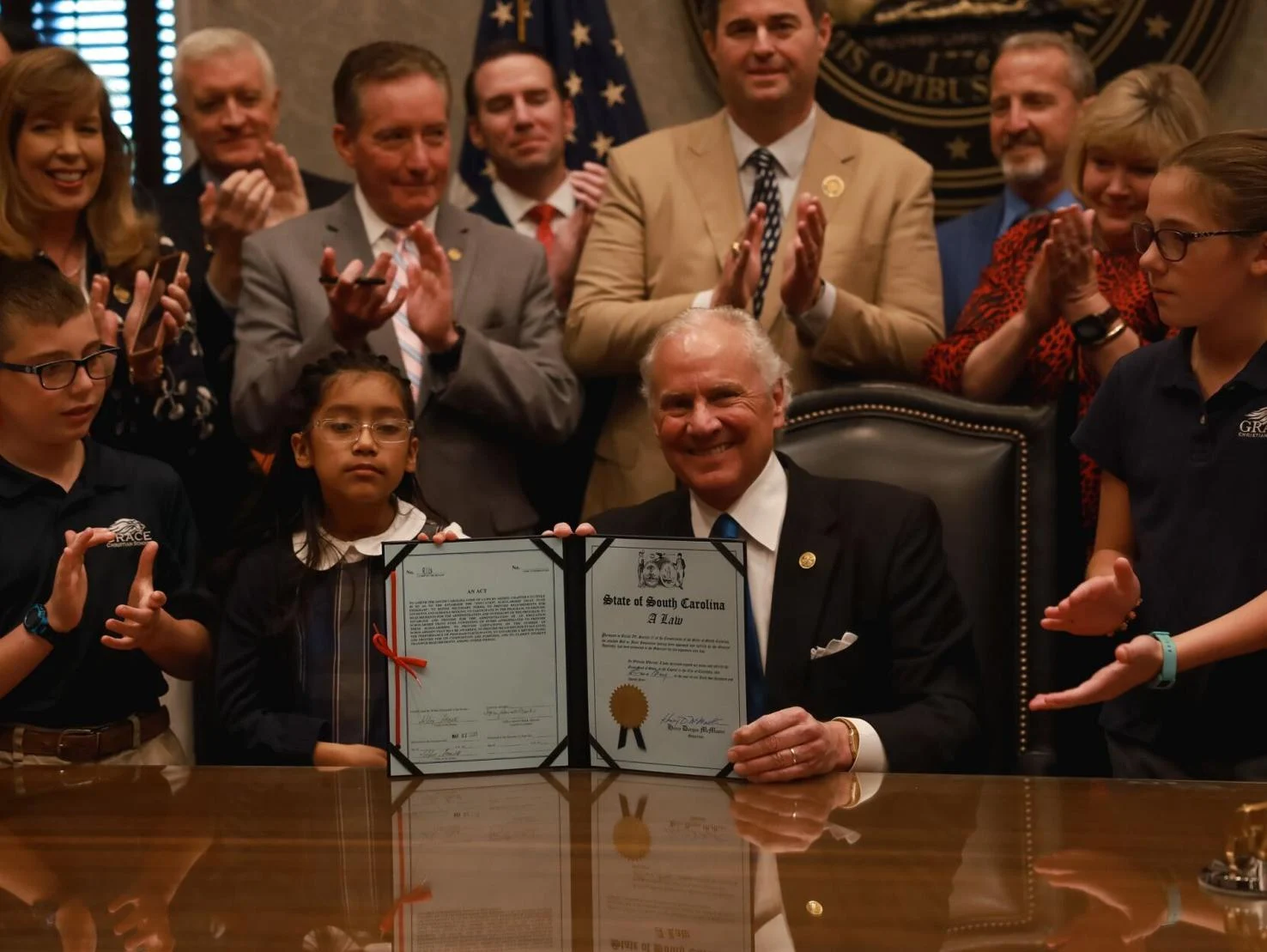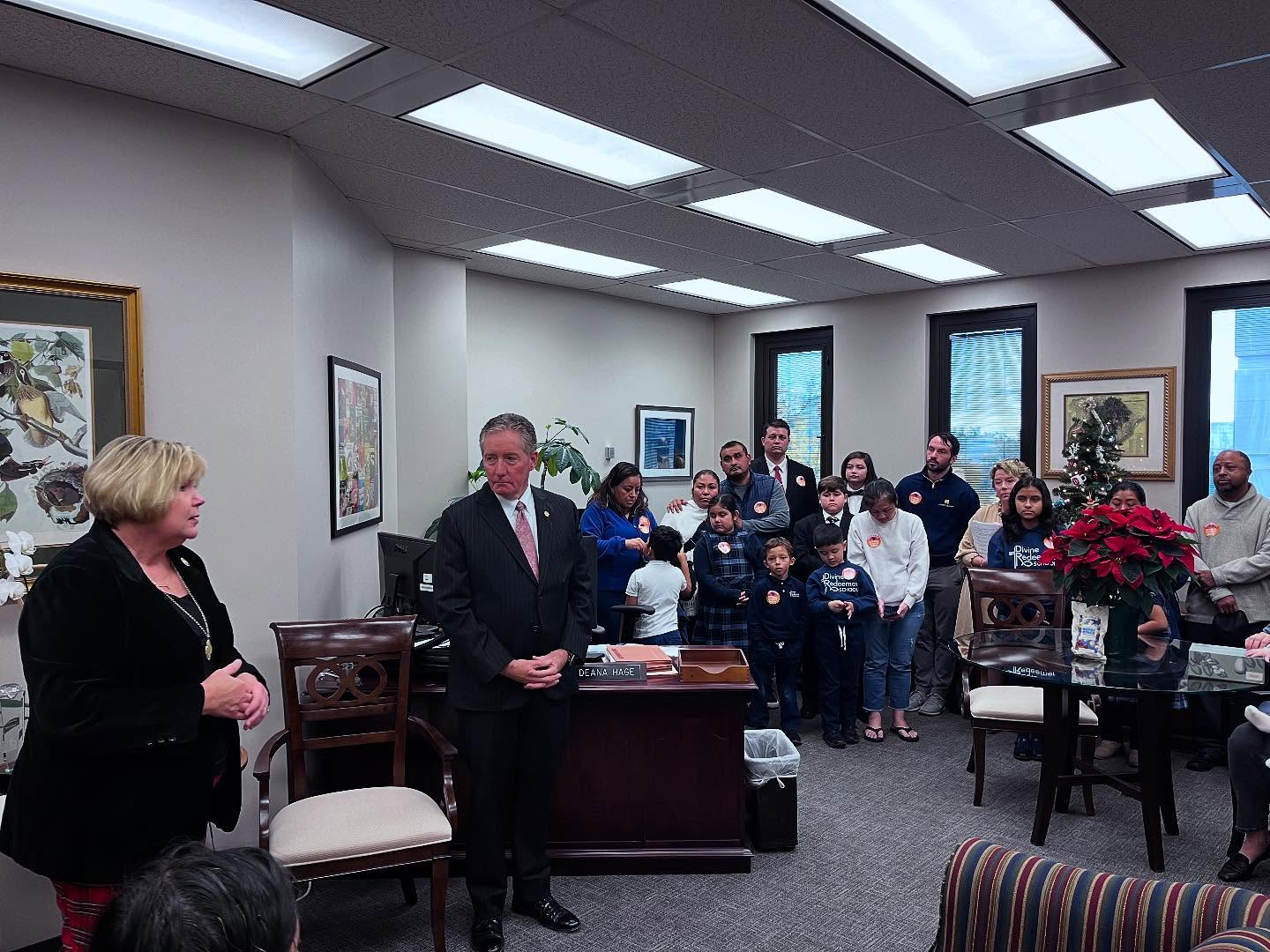New Poll Shows Americans Are Committed to Educational Freedom
A newly-released national poll conducted by yes. every kid. foundation. shows the steadfast support Americans have for education policies that prioritize choice and flexibility.
Have you ever thought of the K-12 education system as flexible?
Most Americans don’t, according to these poll results.
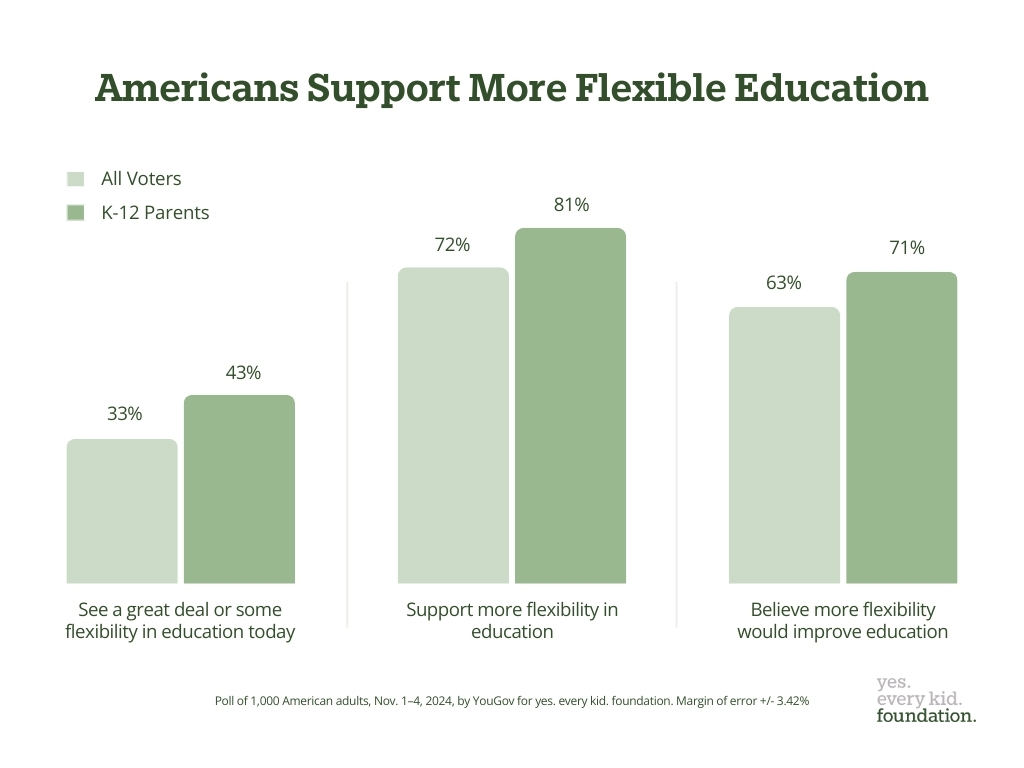
And yet Americans (and parents in particular) crave flexibility in education, and they believe it would improve the whole education system! While a minority of adults believe K-12 education is customizable, 70% believe K-12 education should be customizable, including over two-thirds of adults in nearly every key demographic. These are drastic poll results to which lawmakers should pay attention.
Equal Public School Access
A student’s zip code should not limit his opportunity. Unfortunately, South Carolina policy follows many states: no open enrollment requirement for school districts. Lack of state-wide legislation requiring open enrollment prevents many students from obtaining the education they deserve, one that fits their needs.
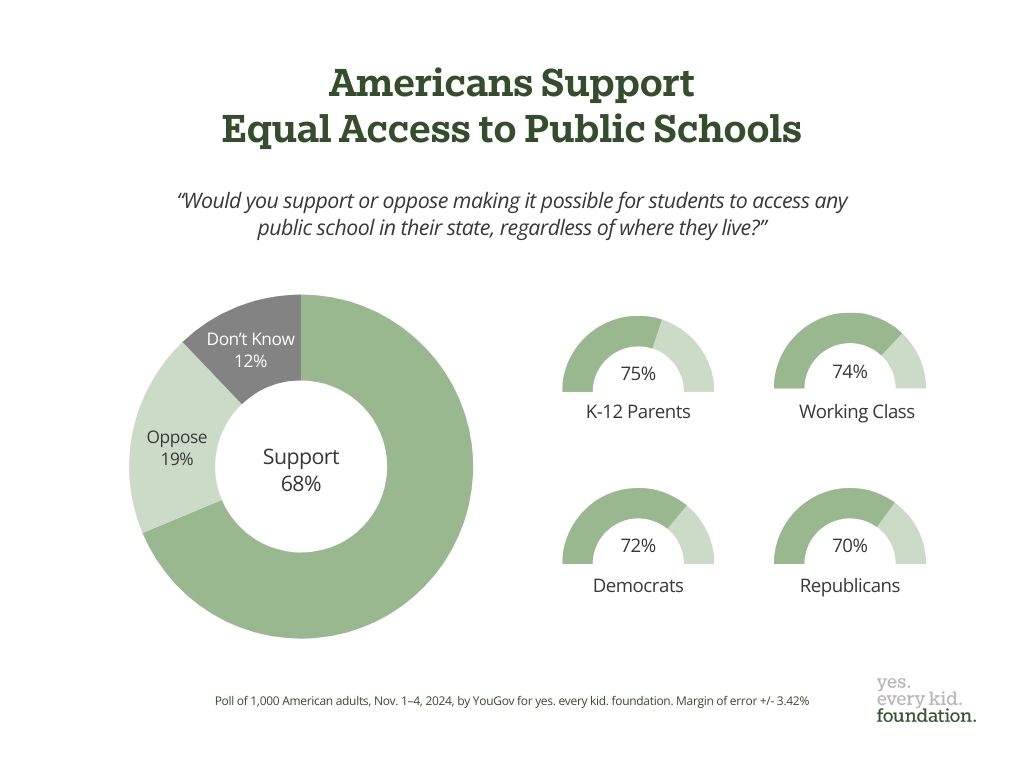
This poll provides quantitative evidence that Americans want to expand education and give students of all backgrounds opportunities to succeed. 68% of surveyed adults support expansion of students’ access to any public school in their state, regardless of where they live. Additionally, a third of those surveyed said the current flexibility of K-12 education is not enough to meet the unique needs of every child. Open enrollment legislation changes this. Embracing flexibility allows school districts to evolve and address challenges quicker.
H.3843 passed the House in the 2023-24 legislative session but died in the Senate. It would have taken a major step in the right direction towards school choice and allowed for open enrollment in South Carolina. This year, Speaker Murrell Smith and House Education Chair Shannon Erickson have pre-filed a new open enrollment bill, H.3199, which we hope to see gain momentum in both chambers in 2025.
Empowering Parents
Education opportunity should not be limited by income. Every child’s learning needs are unique, and Education Savings Accounts provide families with state funding to be used for a customized education. This allows for a more individualized educational experience for each student and benefits students regardless of income.
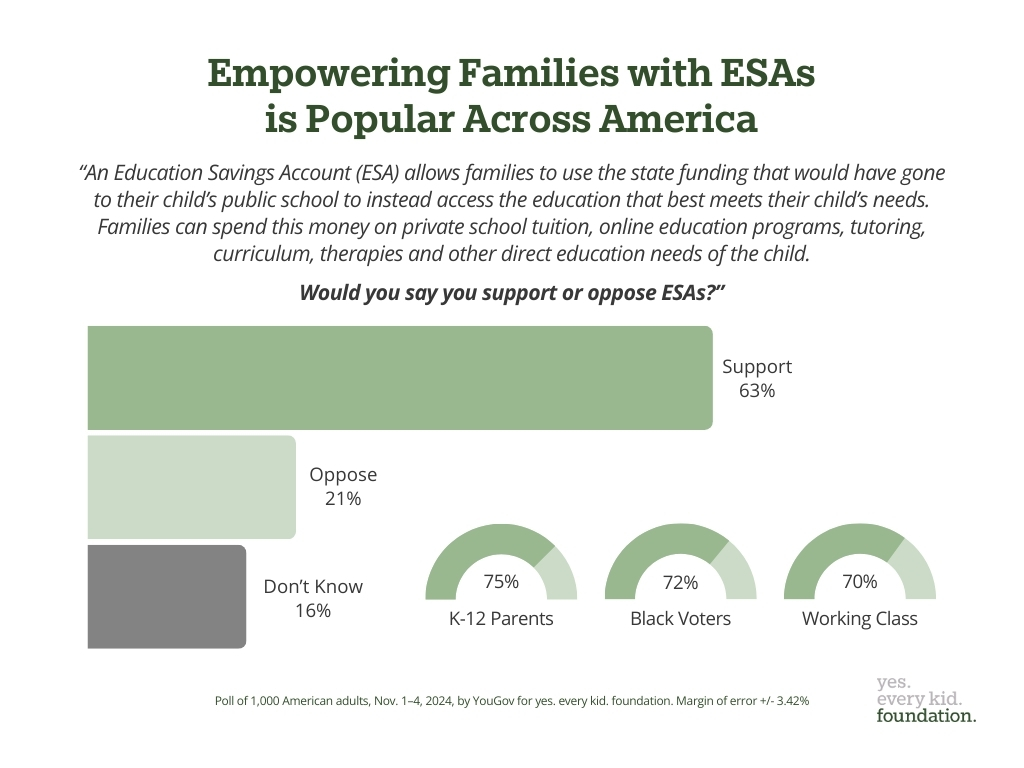
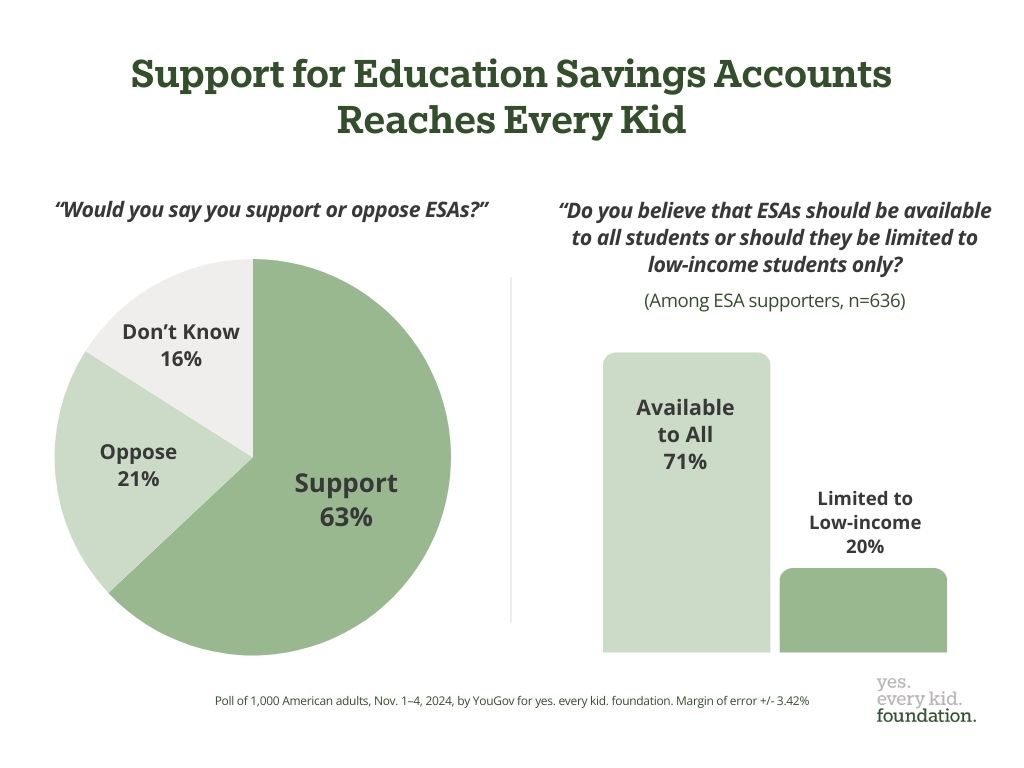
Year after year, when yes. every. kid. foundation. conducts polls to study where Americans stand on school choice policy, one thing remains the same: support for ESAs. This year’s poll shows 63% of Americans support ESAs, and of those who do support ESAs, 71% support them being universal. More than half of surveyed Americans believe expansion of ESAs would directly support the improvement of public education. A rising tide lifts all boats, and the improvement of education opportunity and access increases outcomes for everyone, students, parents, and schools.
Support for school choice is even higher in South Carolina, where 75% of South Carolina voters support a universal ESA program.
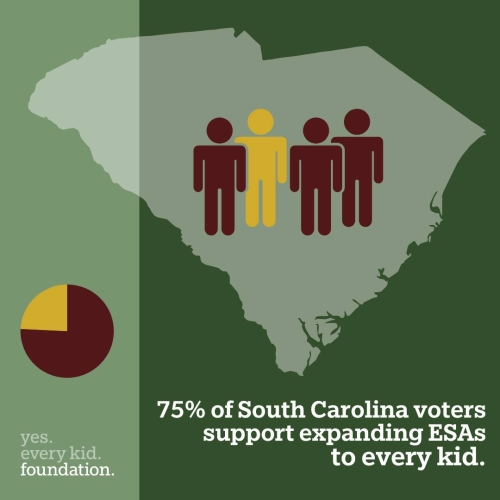
South Carolina’s fledgling ESA program, passed into law in May 2023, allowed thousands of low-income students the opportunity to enroll in schools other than their zoned public school. Unfortunately, the program was kneecapped by the SC Supreme Court in its September decision in Eidson v. SC Department of Education. But the fight for school choice is far from over. These new poll results show what we already know: parents want choice.
Palmetto Promise is committed to answering that charge from parents for a restored and expanded ESA program.
Conclusion
Poll data is a great tool to understanding how Americans and South Carolinians feel about a particular policy. When data is this overwhelmingly supportive of school choice, customization, and flexibility, it’s hard to argue that South Carolina should not continue its expansion of school choice opportunities in all sectors—public, private, charter, magnet, homeschool, and more. Legislators in the 126th General Assembly should take this data to heart and make South Carolina a beacon for education flexibility and freedom.
